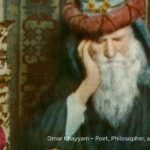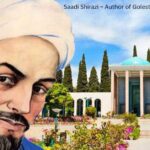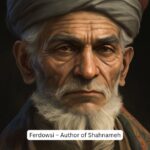Forough Farrokhzad (1935–1967) remains one of the most influential figures in modern Persian literature. Known for her bold themes, candid expression of emotions, and revolutionary approach to poetry, she reshaped Persian poetry in ways that continue to resonate across generations. Farrokhzad’s work reflects a remarkable blend of personal introspection, social critique, and a fearless exploration of feminine identity in a conservative society.
Early Life and Education
Born in Tehran, Iran, Forough Farrokhzad grew up in a time when traditional expectations limited women’s roles in society. Her father, a judge, and her mother, a homemaker, provided a structured yet culturally rich environment. Despite societal restrictions, Forough showed early signs of literary talent, beginning to write poetry in her teenage years. Her formal education in Tehran exposed her to classical Persian literature, Western literary trends, and modernist ideas, which later influenced her unique poetic voice.
Literary Career
Forough Farrokhzad began publishing her poetry in the early 1950s. Her first collection, “The Captive” (1955), addressed themes of personal freedom and societal constraints, marking a departure from the traditional lyrical poetry of her time. Her subsequent works, including “The Wall” (1956), “Rebellion” (1958), and “Another Birth” (1964), reflected a deepening maturity in style and thematic exploration.
Farrokhzad’s poetry often embraced controversial subjects, such as love, desire, motherhood, and female independence, challenging the patriarchal norms prevalent in mid-20th-century Iran. Her writing style combined simplicity with profound emotional depth, using vivid imagery and metaphors to convey complex feelings. This daring approach positioned her as a pioneer of modernist Persian poetry.
Themes and Influence
Several recurring themes define Farrokhzad’s work:
- Feminine Identity: Farrokhzad explored the struggles, desires, and inner conflicts of women, giving voice to emotions often suppressed in Iranian society. Her candid portrayal of female experience was revolutionary for its time.
- Existential Reflection: Her poems frequently addressed the meaning of life, mortality, and personal freedom, reflecting her philosophical and introspective tendencies.
- Social Critique: Beyond personal themes, Farrokhzad subtly criticized societal hypocrisy, political oppression, and cultural restrictions, pushing the boundaries of acceptable discourse in Iran.
- Love and Desire: Romantic and erotic love, often taboo in traditional Persian poetry, were central to her works, portrayed with authenticity and sensitivity.
Farrokhzad’s influence extends far beyond her lifetime. Contemporary Iranian poets, especially women, cite her work as a source of inspiration. Her boldness in confronting societal norms helped pave the way for modern Persian poetry to embrace personal, social, and political themes more freely.
Beyond Poetry: Filmmaking and Cultural Impact
Forough Farrokhzad also ventured into filmmaking. She directed the documentary “The House is Black” (1962), which focused on a leper colony in Iran. This work demonstrated her keen eye for human suffering and social commentary, further cementing her reputation as a fearless artist concerned with both aesthetic and ethical questions.
Her life, though tragically short—she died in a car accident at the age of 32—was marked by artistic courage and intellectual curiosity. Today, Farrokhzad is celebrated not only for her literary contributions but also for her role in challenging social conventions and redefining modern Persian culture.
Legacy
Forough Farrokhzad’s legacy continues to thrive. Her poetry has been translated into multiple languages, reaching a global audience and inspiring readers worldwide. Scholars and literary enthusiasts study her work to understand the evolution of modern Persian poetry, the dynamics of gender in literature, and the intersection of personal and societal expression.
By blending modernist literary techniques with fearless exploration of taboo subjects, Farrokhzad transformed Persian poetry into a medium that could express individuality, emotion, and social critique simultaneously. She remains an icon, symbolizing artistic integrity, intellectual bravery, and the enduring power of poetry.
Conclusion
Forough Farrokhzad was more than a poet; she was a cultural revolutionary whose words challenged norms and celebrated the complexities of human experience. Her fearless exploration of identity, love, and society continues to inspire modern readers and poets alike, solidifying her place as an enduring icon of Persian literature.



